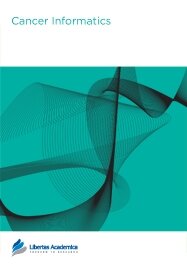

Publication Date: 12 Jan 2015
Type: Review
Journal: Cancer Informatics
Citation: Cancer Informatics 2014:Suppl. 6 25-33
doi: 10.4137/CIN.S17686

Classic multinomial logit model, commonly used in multiclass regression problem, is restricted to few predictors and does not take into account the relationship among variables. It has limited use for genomic data, where the number of genomic features far exceeds the sample size. Genomic features such as gene expressions are usually related by an underlying biological network. Efficient use of the network information is important to improve classification performance as well as the biological interpretability. We proposed a multinomial logit model that is capable of addressing both the high dimensionality of predictors and the underlying network information. Group lasso was used to induce model sparsity, and a network-constraint was imposed to induce the smoothness of the coefficients with respect to the underlying network structure. To deal with the non-smoothness of the objective function in optimization, we developed a proximal gradient algorithm for efficient computation. The proposed model was compared to models with no prior structure information in both simulations and a problem of cancer subtype prediction with real TCGA (the cancer genome atlas) gene expression data. The network-constrained mode outperformed the traditional ones in both cases.
PDF (1.58 MB PDF FORMAT)
RIS citation (ENDNOTE, REFERENCE MANAGER, PROCITE, REFWORKS)
BibTex citation (BIBDESK, LATEX)
XML
PMC HTML


Compared with other journals we considered for publishing, Cancer Informatics provided extremely rapid but quality turnaround from draft submission to a flawlessly typeset final publication. Moreover, sharing the article is now as easy as sharing a link with no subscriptions required, and additional code and data files are equally accessible, supporting reproducible research. Because it has published many of our references we feel confident that our target readership must follow the journal. This is further ...
Facebook Google+ Twitter
Pinterest Tumblr YouTube